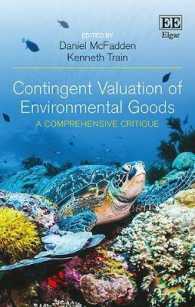Full Description
Further, scholarly work on the themes of comparative law, customary law, environmental law, and constitutional law is also highlighted.The yearbook intends to seamlessly tie together discussions on both public and private law aspects of comparative law.








